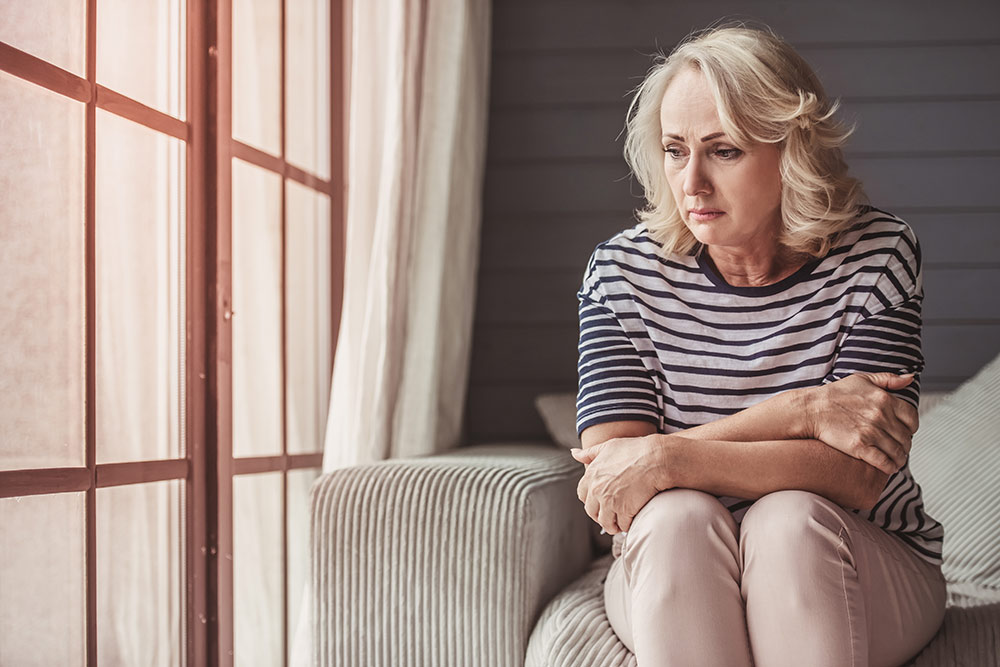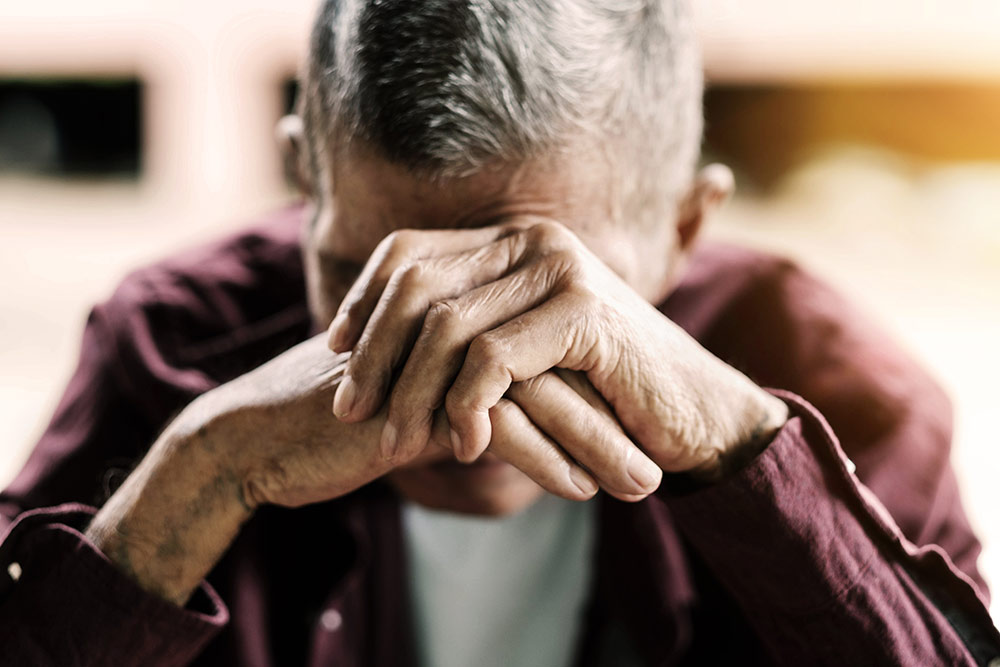According to the CDC, 20% of the older adult population (55 years old and above) battles with a specific type of mental health disorder every day. Depression is the most common one, followed by anxiety, bipolar disorder, and dementia.
These mental health diseases occur because of several factors, some of which are:
- An underlying medical condition
- Loss of a loved one
- Financial problem
- Cognitive and physical decline
- Socially isolated
- Loss of purpose
- Medication side effect
Unfortunately, two-thirds of affected seniors suffer in silence as treatment and mental health services for the elderly are limited.
Furthermore, many older adults do not voice their health issues as they do not understand them themselves. Thus, it is up to the family members and caregivers in senior living facilities to develop sensitivity towards seniors’ mental health challenges.
Here’s a list of some of the most common senior mental illnesses you need to know about.
Common Mental Health Problems of Seniors
At least one 1 out of 4 elderly struggle with some form of mental illness. Here are the most common of them:
1. Depression
Depression is a mood disorder that causes the affected individual to experience extreme loneliness, inability to be social, sleeping problems, and a general feeling of being “tired.”
Depression is a complex disease and can be caused by many factors. From genes and traumatic experiences to serious medical illnesses. Once a person acquires depression, it can be hard to eliminate. It sometimes takes a lifetime of medications and counseling therapies.
If unaddressed, most depressed patients suffer from physical discomfort and tend to have suicidal ideations.
Older adults in senior living communities often get this illness, especially those not visited by family members.
2. Anxiety Disorder
Anxiety becomes a disorder when it starts to interfere with a senior’s everyday life. Anxiety attacks from excessively overthinking and worrying about something triggering for the patient.
When it attacks, seniors usually experience chest pain, heart palpitations, dizziness, hot flushes, and extreme fear.
3. Borderline Personality Disorder
Personality disorder refers to behavior and personality disturbances that affect a senior’s social relationships. Patients with this illness are emotionally unstable and experience suicidal ideations.
4. Eating Disorder
Eating disorders have many different types. But the two most common ones caregivers should know about include:
- Anorexia nervosa – Refers to a type of eating disorder where the patient limits their food intake to an unreasonable amount. This can be triggered by depression, isolation, or fear of gaining weight.
- Bulimia – Characterized by the intense desire to purge after meals. It is harder to spot than anorexia because it does not always result in extreme weight changes.
5. Post-Traumatic Stress Disorder
Contrary to popular belief, PTSD not only happens to seniors with war histories. It can occur to anybody who has been through a terrifying or traumatic event. This includes accidents, abuses, severe health problems, and childbirth experiences.
PTSD has varying symptoms, but most patients experience having intrusive memories of the traumatic event and uncontrollable anxiety over it. Symptoms also include nightmares and changes in behavior.
6. Schizophrenia
Schizophrenia can happen to anybody, from individuals in their mid-20s to seniors at age 77. It still has an unknown cause, but research points to a combination of genetic and environmental factors.
Seniors with schizophrenia display several cognitive, behavioral, and emotional symptoms, like:
- Delusions and hallucinations
- Disorganized speech and thinking
- Abnormal behaviors like childlike acts, aggressiveness out of nowhere, and bizarre posture
- Inability to function normally in everyday activities
- Lack of emotion

Taking Care of Seniors With Mental Illness
Mental illness often gets associated with teens and young adults. But in reality, it can affect anyone regardless of age. In fact, seniors are at high risk of acquiring these illnesses because of the physical and emotional changes happening during aging.
Most seniors ridden with mental illness don’t even know they have one. Thus, delaying their treatment. Some older adults know they are mentally ill but forgo treatments because of the social stigma.
As a family caregiver or one that works in senior living, you have to spot these symptoms and help seniors get the treatment they need. Here are some helpful tips on how to handle and take care of patients suffering from mental disorders.
- Inform their doctor and schedule a visit. If you spot some telltale signs and symptoms, it is essential to inform their doctor about it. You can observe your loved one for a week and then write everything about the physical and behavioral changes. Inform their doctor then schedule a visit.
- Talk to them about it. After a definite diagnosis, give them a little time to be alone with their thoughts. Then, you can initiate a calm and carefree conversation about it. Make sure to let them know that there’s no stigma anymore. Mental illness is just as serious as any other disease, and there’s no shame in seeking treatment.
- Expect some form of resistance. Seniors lived at a time where mental illness is seen as something shameful and should be hidden. It’s difficult for them to change their perspective about it in a snap. So during your conversation, you can expect sudden emotional outbursts from them, which is normal. You can always try broaching the subject again if you fail the first time.
- Learn about their disease. Caregivers and family members need to know everything about their loved one’s condition. It is essential to understand what they’re going through and see things from their perspective. Also, learning about their illness makes it easier for you to provide the best environment and treatment for them.
- Get help. It is vital to get both professional and familial help for your loved one. Provide a stress-free environment by surrounding them with the people they love. If they don’t enjoy the company of many people, then just be there for them. Accompany them with everything without making a big deal out of it. Treat them as you would a normal person.
- Get support for yourself. Make sure to surround yourself with the best support system. Taking care of a senior can take a toll on your own mental and physical health. So be sure to take breaks and schedule “me time” as much as possible.

